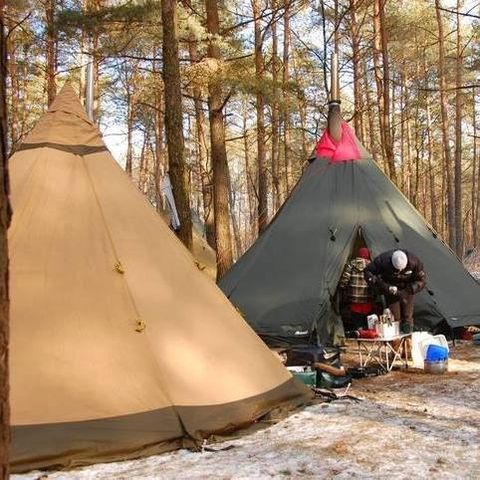


Picture this: the grid is down, cash is useless, and stores are empty. What do you do when you need something? You barter. Bartering supplies isn’t an outdated, old-fashioned concept; it’s your lifeline in a survival economy where money is worthless. This guide teaches you bartering skills in order to prepare before it’s too late.
In a disaster, money often loses its value almost immediately. Gold can’t feed you, and a wad of cash won’t keep you warm. That’s why bartering becomes essential during any crisis. It’s all about trading what you have for what you need—no intermediary banks, credit checks, or other hassles.
Food, water, and tools replace money as the new currency. For example, trading a can of beans for a blanket helps you adapt and survive in an outdoor environment. Bartering does more than just help you get what you need. It also builds trust and creates strong community bonds. These connections may save your life when resources run low.
If you want to barter, collect items people will always need. Focus on small, useful, and easy-to-carry items.
Start with small, practical items and expand your inventory over time. The more useful an item is, the more valuable it becomes in a trade.
If you don’t have supplies, don’t worry—skills are even better. Unlike items, skills don’t run out. This makes them invaluable during hard times.
Start practicing these skills now, even if it’s just the basics. The more you know, the more valuable you’ll be when things get tough.
Bartering is about more than swapping goods. It’s also about building trust and knowing your worth. Mastering the art of negotiation can make a huge difference.
- Start Small: Use low-value items to test the waters and build trust with others. Save big trades for business partners whose relationships with you are solid.
- Know Your Worth: Understand what you’re offering, and its value based on local needs. Scarcity often increases demand, so plan accordingly.
- Stay Flexible: Sometimes, offering services instead of goods works better for both parties. Creativity in trading opens new doors.
- Be Polite but Firm: Respect others while standing your ground to avoid exploitation. Protect your safety and your resources.
- Walk Away If Needed: Trust your instincts if something feels off or unsafe. It’s better to skip a trade than risk a bad outcome.
Negotiation builds stronger networks and ensures everyone feels satisfied with their trades.
Let’s face it—bartering comes with risks, especially during desperate times. Staying cautious can help protect you and your resources.
Safety should always come first, no matter how good a deal might seem. One small mistake could lead to unnecessary risks on property or your life.
In a world where resources are scarce, relationships matter more than ever. Start creating your barter network now, before it’s too late.
The more people you know, the easier it is to find what you need. In a crisis, strong connections will often serve as your most valuable resource.
Bartering isn’t just about trading things. It’s about resourcefulness, survival, and relationships. By stockpiling wisely, learning valuable bartering skills, and practicing negotiation, you’ll be ready for whatever comes your way.
Start small today. Gather your essentials, sharpen one or two skills, and test your bartering chops. When the world changes, being prepared won’t just feel smart—it’ll save your life!
- What items are best for bartering?
Focus on essentials like food, water, medical supplies, and tools. - Are skills more valuable than goods?
In many cases, yes! Skills like medical care and mechanics are always in demand. - How do I practice bartering skills?
Try it at flea markets or through online swaps to get comfortable with trading. - What’s the safest way to barter?
Trade in public spaces, bring a buddy, and avoid showing all your goods at once. - Should I barter with strangers?
Be cautious. Build trust first or stick to your network. - What skills should I learn for bartering?
Medical care, mechanics, hunting, and home repair are highly valuable. - Is bartering legal?
In most cases, yes. Check local laws for any restrictions. - Can bartering replace money?
In a crisis, it often does. Essentials become more valuable than cash. - What if I have nothing to trade?
Offer labor or learn a valuable skill to trade instead. - How do I avoid scams?
Stay alert, trade small at first, and always trust your gut.
Master the art of survival today! Head over here for exclusive guides on improving your bartering skills, building your trade network, and stocking the perfect items.
- Advertisement -
